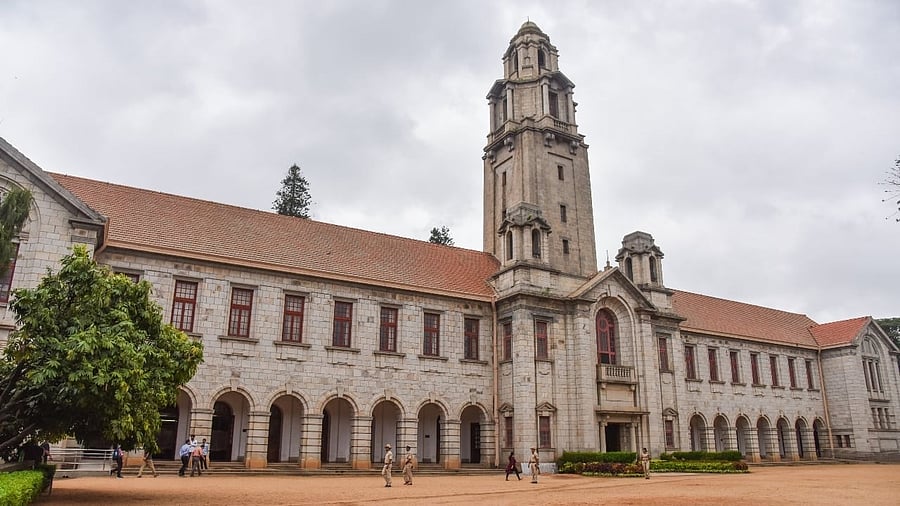
IISc Bengaluru.
Credit: DH File Photo
Bengaluru: The Ministry of Mines, Government of India, has recognised the Indian Institute of Science (IISc), Bengaluru, as one of the Centres of Excellence (CoE) under the National Critical Minerals Mission (NCMM).
Launched with a budget of ₹16,300 crore, the Mission aims to strengthen India’s self-reliance in critical minerals vital for clean energy, defence, and advanced technology sectors.
The newly established CoE at IISc will set up an Integrated Critical Minerals Research and Development Facility covering the entire value chain right from exploration and extraction to processing and recycling.
It will design modular pilot-scale plants using indigenous process and equipment technologies to reduce import dependence and drive sustainable growth.
The CoE will also collaborate with industry partners through IISc’s Foundation for Science, Innovation and Development (FSID) to translate research into scalable industrial solutions.
IISc will pioneer a greener lithium-ion battery recycling process, offering a sustainable alternative to the conventional black-mass route currently exported due to inefficient recovery systems.
To support India’s Green Hydrogen and Fuel Cell Mission, the Institute will also recycle platinum group elements (PGEs) from spent auto catalysts, targeting up to 90% recovery efficiency through high-throughput systems integrated with PGE separation and purification technologies.
Given the volatility in global supply chains, India’s reliance on imported rare earths and strategic minerals highlights the urgency of indigenous R&D. From toys to satellites, critical minerals underpin modern manufacturing and innovation.
While India has built strong capabilities in semiconductors, digital infrastructure, and mobility, sustained progress depends on developing core material technologies at home.
IISc also aims to curb dependence on imported tungsten carbide by developing a direct carbide recycling route, enabling end-of-life carbide tools to be reused with minimal energy input.
In parallel, the Institute is partnering with industry to recover rare-earth oxides from mineral-processing tailings, establishing circular value chains in critical materials.
